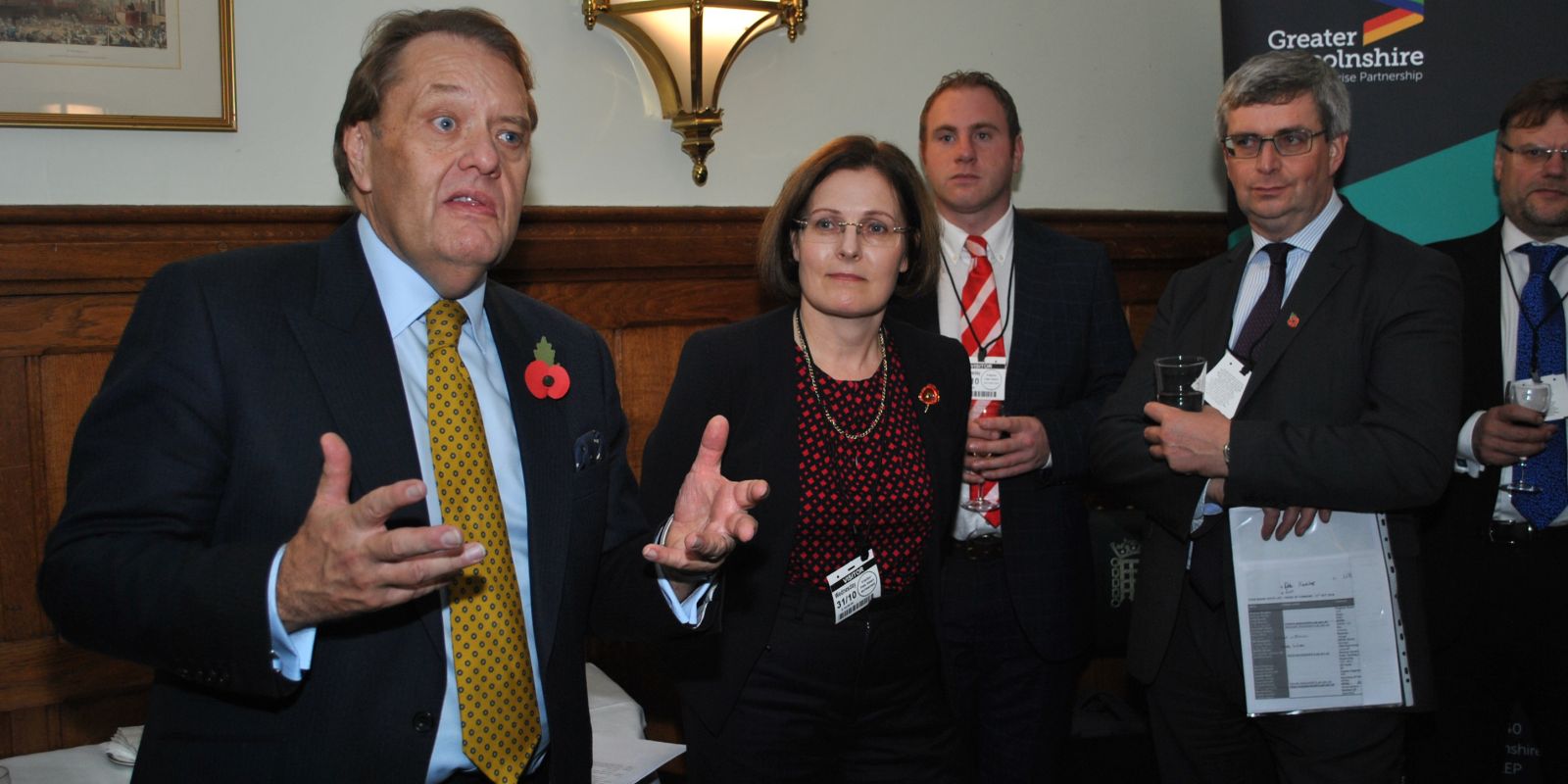Food industry issues were on the agenda when our Food Board met MPs in Parliament.
Key issues facing the food industry were on the agenda when our Food Board met MPs, peers and DEFRA officials in the House of Commons on Wednesday (31st October).
A very positive discussion on the future of the food chain was led by our Chair, Ursula Lidbetter MBE, and Rt Hon John Hayes MP. Lincolnshire parliamentarians Melanie Onn MP, Nic Dakin MP, Martin Vickers MP, Dr Caroline Johnson MP, Baroness Redfern and Lord Haskins also met Food Board members at the reception.
Discussions focused on three major areas:
Workforce supply and skills
- Will Naylor of Bakkavor and Robert Smith of Danish Crown both spoke about the challenges associated with securing the skilled workforce needed for current operations and to facilitate growth. Both spoke eloquently about the potential to improve productivity and working conditions through automation, but explained that this requires considerable investment in physical facilities and training and will therefore take time to implement.
- Many roles remain which cannot currently be automated, so there is a need to have access to a workforce to bridge the gap until automation is available.
- This same theme was picked up by David May of the Lincoln Institute for AgriFood Technology (LIAT) who explained that while there are automation solutions available for some jobs, notably areas such as handling and loading, in other areas such as crop harvesting or sandwich making the technology is not yet available.
Trade
- Jonathan Oldfield of Moy Park explained that in the meat sector trade was a major issue, not only for the end product but also in terms of inputs such as livestock feed. Simon Dwyer of Seafood Grimsby and Humber and Simon Smith of Seachill explained that in the fish sector 90% of the seafood processed is imported mostly from EEA states, although much of this fish transits the EU to get to the UK. Frictionless trade is therefore essential to the continuation of the trade in meat and fish products.
- James Dallas of Openfield explained that Brexit does provide the potential to improve the ease with which the UK can trade by reducing regulation if approached correctly. In the grain sector this should include focusing on targeting higher value markets and added value products.
Infrastructure
- The need for competitive infrastructure was discussed. This focused on electricity supplies and water resources;
- On water resources the need to unite flood prevention and water supply to provide holistic landscape scale water management was debated. The potential to develop a water grid and to move water was also seen as being a good way to meet future water supply challenges;
- Similarly, on energy it was recognised that rural growth is being constrained by a lack of grid capacity. University of Lincoln explained some of the work they are undertaking to develop a smart grid programme for Lincolnshire, while the LEP also intends to include rural smart grids in its Local Industrial Strategy.
- The potential for the food industry to contribute to this was discussed, as was the potential to link water and energy by flexing when water is pumped to help balance the grid.


